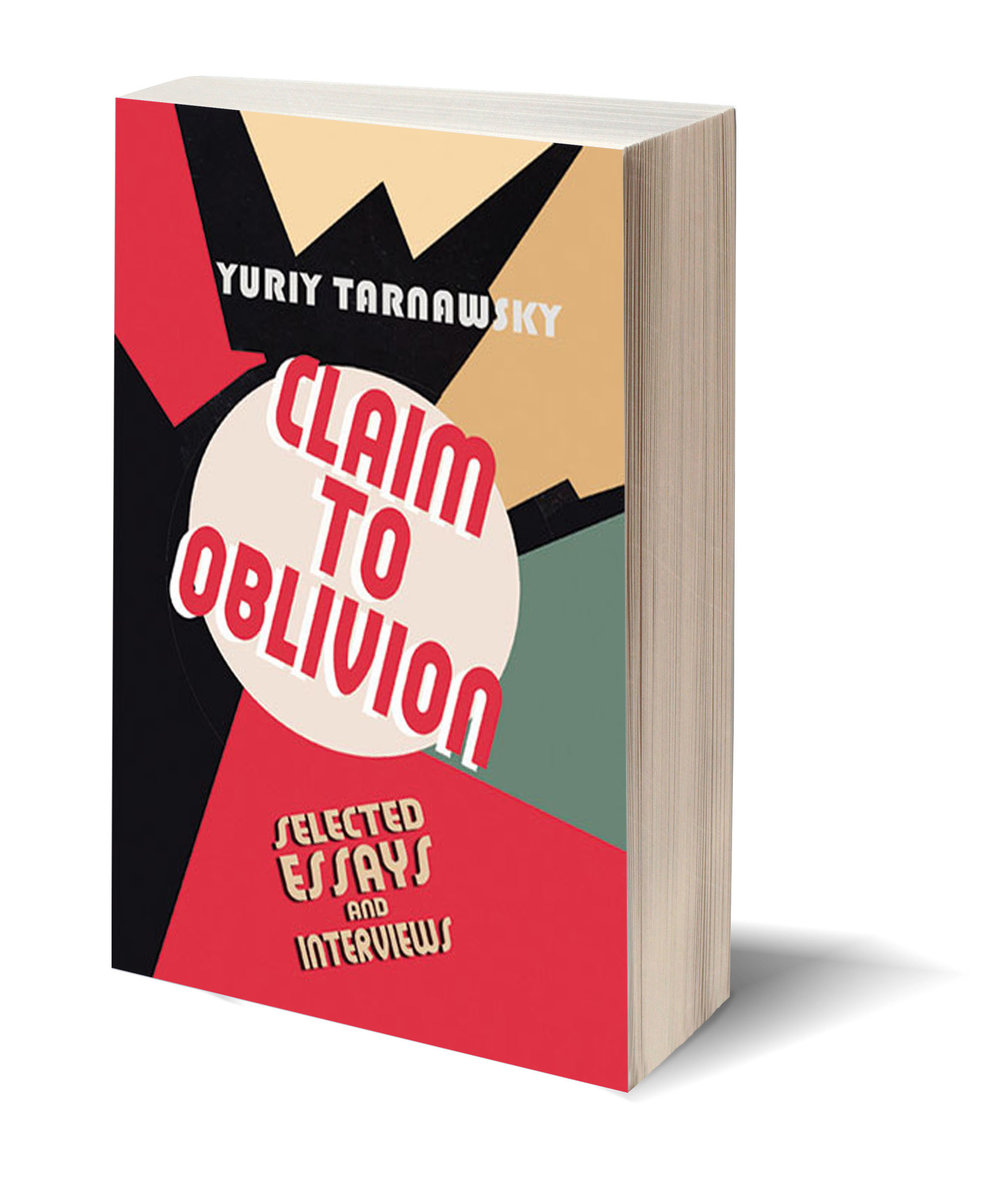Claim to Oblivion
By Yuriy Tarnawsky
JEF Books |
 |
|---|
Reviewed by T. M. De Vos
It's a perverse fact of human nature that, the rarer and more wondrous an object, the greater our desire to expose it. We want to see underneath the hood, the clothing, the skin, as though we could read an object's true nature from its guts. To be fair, we understand a thing differently—more deeply—when we see what it keeps private: the refrigerated coils of a vending machine, the flayed thorax of a food animal, the nude figure. Confronted with the rare and wondrous in prose, we respond no differently: we look for what the author has not said, for his absences.
By turns gnomic, playful, philosophical, and unsettling—and frequently leaving much up to the reader—the prose of Yuriy Tarnawsky lends itself particularly well to this pursuit. In my own conversations with Tarnawsky, I have sought an understanding of the psychodynamics of his characters and their odd quandaries and desires. What is striking in all of Tarnawsky's conversations—both monologue and dialogue—is his simultaneous play between the worlds of the surreal and the practical.
In Claim to Oblivion, which collects a series of Tarnawsky's essays and interviews, we find an author who is quite embodied in the real world: he admits to David Moscovich that "at times it was torture" to come home and subject himself to a few hours' writing after a full day of work. It's always nice when an established author admits that writing can be awful and that one must work at other things to support oneself. However, the import of this statement, for me, was deeper: if an artist such as Tarnawsky, who so deeply embodies his work and commitment to the surreal and experimental has—or has had—the same struggles with the practical side of writing as any other author, then perhaps they are not moral or artistic failings, but valid challenges. Tarnawsky also shares with us his moments of connection—with visual art, with film, with grammar and syntax—and how they have influenced him as a thinker and artist. In a particularly interesting exploration of "The Effect of Grammar Restrictions on a Literary Work," Tarnawsky refigures passages of his own work with different sentence structures and discusses the outcomes. It's refreshing when an author is willing to consider his work in light of the choices he might have made, and to share that consideration openly with the reader: it's at once a display of vulnerability and strength, a bit like acknowledging, then dismantling, the counterargument.
It is this openness about his everyday personhood—not just as a creator, omnipotent in the world of his creation—that makes adopting Tarnawsky's invocation of the surreal and "using dreams as sort of artistic 'yeast'" possible. I might also add credible: though Anaïs Nin's injunction to "live from the dream outward" is appealing, it is difficult to picture how that might look when the alarm goes off in the morning. Indeed, dreams have been so heavily sacked by popular psychology, positive psychology, and the cliché of general parlance that I had all but dismissed them as a creative source of interest. Tarnawsky's discussion of dreams and the abstract—at times academic, at times matter-of-fact—refreshes the idea of turning to the subconscious. In an especially resonant passage in "Literature and Dreams," he describes the "blocks" that prevent the mind from "seeing things which do exist" and how "dreams remove some of these blocks." The language is simple, never redolent of New Age beliefs or mysticism, and Tarnawsky leaves it up to the reader to remove those blocks.
Making hay should never be the main goal in considering a writer's comments on craft, but this essay helped me to open my mind to a "'dream-producing mode'" which "freed up my imagination and made it work at its full potential." That very night, I dreamed of a swallow trapped in my house, which I captured with great difficulty, and with some accidental injury to the bird, to release outside. It flew at the side of a barn, breaking through into the hayloft. Glad that no one knew of my failed attempt to rescue the bird, I turned away. But the bird returned, now with a man's face—at once the man I was born to, a man I had loved, and the man I now love—beating me with its wings. The bird itself does not constitute literature but, perhaps through it and its fellows, I may access some idea or image that does.
If our goal in reading is, stated simply, not to be the same afterwards, Claim to Oblivion is a success. Though Tarnawsky himself is more present here than in his fiction, he leaves space for the reader to experience his conclusions: he is not pushy. At once a companion volume to his work and a study in craft, Claim to Oblivion is best read out of sequence, with sufficient time to dismantle—and be dismantled by—Tarnawsky's insights into language, subjectivity, and mortality.
